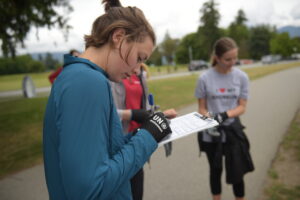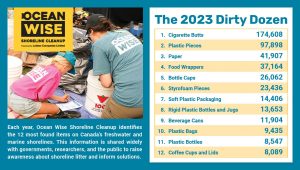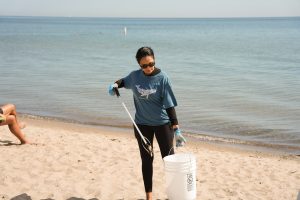Our Data
Our data provides critical information to address plastic pollution at its source.

Shoreline Cleanup data is collected by citizen scientists
Shoreline Cleanup data has been used to take major action by informing litter-related policy across Canada. Perhaps most notably, this data was used to help guide the federal ban on unnecessary single-use plastics - meaning if you've ever taken part in a Shoreline Cleanup, you have played a role in making this happen!
We see our Shoreline Cleanup data as a tool to empower strides in plastic reduction research and policy - and we want YOU to use it! To access our data, please contact us at [email protected] with information on the region (province/state, city, or municipality), information required, and a brief description of your project. If you use Ocean Wise Shoreline Cleanup data in a publication, please include an acknowledgement of the Shoreline Cleanup program and share your final report with us by emailing it to [email protected]
Our data is an accumulation of nearly 30 years of citizen science-led Shoreline Cleanups. Thanks to the efforts of over one million volunteers who have collected litter data on shorelines across North America, our dataset is extremely robust - making it a powerful tool to help decisionmakers address plastic pollution at its source. The Shoreline Cleanup dataset is open source and available, making it accessible to researchers, policymakers and anyone who's curious about the impact of cleanups.
Thank you for using our data to inform real, lasting change!

At the end of each year, we compile the litter data we've collected into an Impact Report, which can be accessed here.

Each year we identify the 12 most found items on our freshwater and marine shorelines.

Support your local community and contribute to vital data today by leading a Shoreline Cleanup!

Visit our library of policies, bylaws and other legislation that municipalities within Canada and internationally have used to successfully tackle plastic waste in their own communities.
